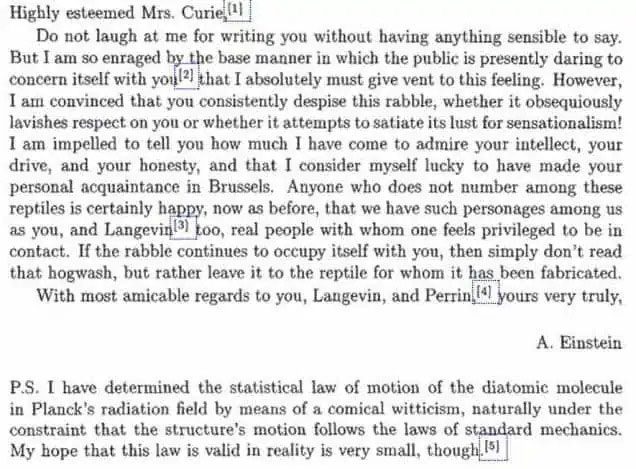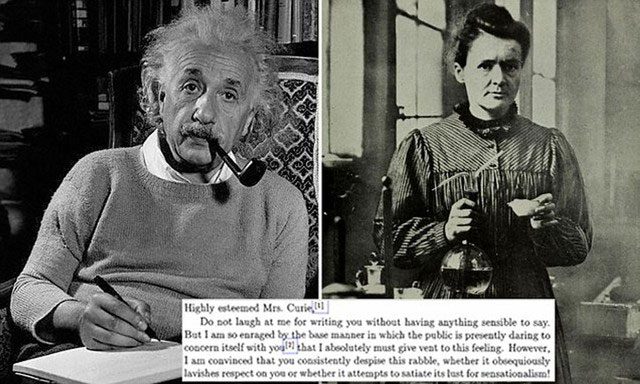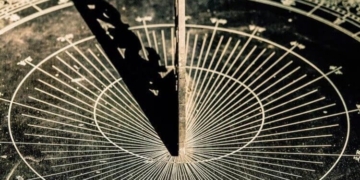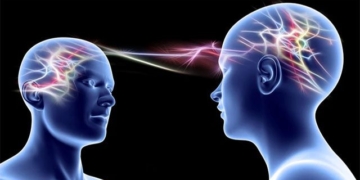This letter was recently revealed through the Digital Einstein Papers project.
In 1911, during a tumultuous moment in her life, Albert Einstein sent Marie Curie a letter of encouragement, expressing deep empathy and genuine friendship between two of humanity’s brilliant minds. More than a century later, the story of this letter still holds profound meaning, reminding us of the power of solidarity in the face of adversity.
Marie Curie and the Storm of Public Opinion

Scientist Marie Curie.
Marie Curie, born on November 7, 1867, in Warsaw, Poland, is one of the outstanding symbols of modern science. As the first woman to receive a Nobel Prize in 1903, she and her husband, Pierre Curie, were honored for their groundbreaking research on radioactivity. However, her glory was short-lived as tragedy struck when Pierre died in a horrific accident in 1906.
After her loss, Marie Curie continued her scientific work, carrying the responsibility and passion that she and Pierre once shared. In 1910, Curie began a relationship with Paul Langevin, a younger physicist and a former student of Pierre. Langevin, trapped in an unhappy marriage, found empathy and understanding in Curie. However, this relationship was discovered by Langevin’s wife.
Not only did she publicly criticize Curie, but Langevin’s wife also hired someone to break into Curie and Langevin’s apartment to steal personal correspondence, which was then published in tabloid newspapers. The articles not only slandered Curie but also employed xenophobic and anti-Semitic language, labeling her as a “family wrecker.”
At the same time, Curie faced failure in her bid for election to the French Academy of Sciences, a setback believed to stem more from gender bias and her foreign origins than from a lack of ability. Nevertheless, amidst the storm of public opinion, Curie attended the 1911 Solvay Conference in Brussels, where she met with some of the greatest scientists, including Albert Einstein, Max Planck, and Ernest Rutherford.
Einstein and His Humanistic Encouragement
Witnessing the unjust treatment Curie endured, Albert Einstein wrote a heartfelt letter to encourage her.
In the letter, Einstein wrote:
Dear Ms. Curie,
Please don’t laugh when I write this letter to you, which might seem frivolous. But you know, I am very angry about how public opinion is pointing sharp arrows at you. I must express it to relieve my frustration.
Ms. Curie, I am also certain that your disdain for the noisy crowd looking to stir up trouble out there is no less than mine.
From the bottom of my heart, I must say that I greatly admire your intellect, effort, and integrity. I feel incredibly fortunate to have had the chance to meet you in Brussels. It is also a great honor to converse with you and Langevin.
Ms. Curie, if those petty people continue to scribble and gossip about you, simply do not read that nonsense anymore. Instead, let them enjoy the absurdity they have created themselves. The more you seem concerned, the more ridiculous stories will be woven.

Einstein’s words were not only a sharing of emotions but also a recognition of Marie Curie’s value. He affirmed that her worth was not diminished by public slander.
Ignoring the criticisms, Marie Curie continued her scientific career. In December 1911, she traveled to Stockholm to receive the Nobel Prize in Chemistry for her discoveries of radium and polonium, becoming the first and only person to date to win two Nobel Prizes in two different scientific fields.
Her decision to appear at the award ceremony, despite calls from the Swedish Academy to avoid controversy, showed Curie’s determination to prioritize science above all else.
Marie Curie and Albert Einstein later developed a deep friendship. They often vacationed together and continued to support each other in their scientific endeavors. When Einstein faced political criticisms, Curie was there to defend and encourage him.

Albert Einstein praised Curie not only for her intellect but also for her admirable character. He remarked that Curie’s strength and resilience were an inspiration for generations, not only in science but also in overcoming social barriers.
The story of the friendship between Albert Einstein and Marie Curie remains relevant today as individuals—especially women—still face prejudice and pressure from public opinion. Einstein’s letter serves as a testament to the power of empathy and genuine friendship, while Marie Curie’s journey reminds us of the value of resilience and relentless effort.
More than a century later, Marie Curie’s legacy remains a beacon illuminating scientific excellence and personal courage. Albert Einstein’s letter, though just a small piece, highlighted the spirit of two great individuals. It serves as a reminder that, despite facing adversity, true values and humanity will always exist and endure.




















































